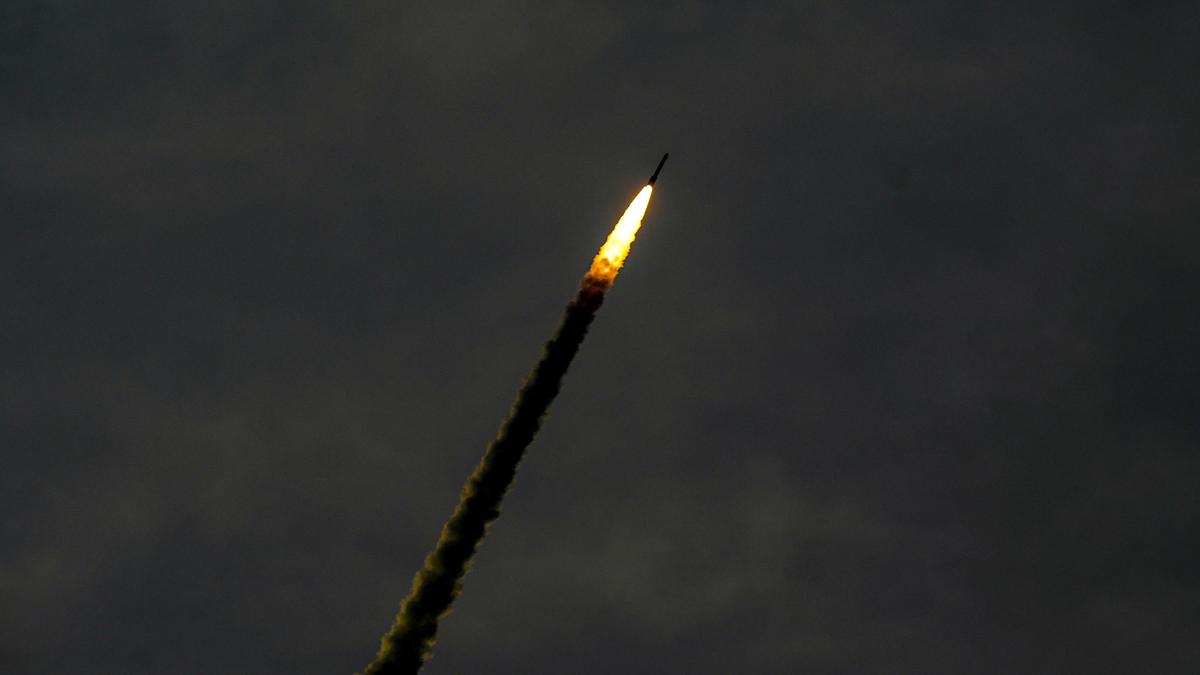PSLV-C61 rocket carrying Earth Observation Satellite (EOS-09) lifts off from the first launch pad, in Sriharikota, Sunday, May 18, 2025. After a precise liftoff, Chairman V. Narayanan said that the mission could not be accomplished as planned.
| Photo Credit: PTI
The Indian Space Research Organisation (ISRO) could not accomplish its 101st launch, the PSLV-C61/EOS-09 mission, on Sunday (May 18, 2025).
Minutes after PSLV-C61 with the EOS-09 earth observation satellite lifted off from the Satish Dhawan Space Centre in Sriharikota at 5:59 a.m., the space agency said that the mission could not be accomplished due to an ‘observation’ in the third stage of the launch vehicle.

Some 17 minutes after lift off, the ISRO’s PSLV rocket was to place the satellite into a Sun Synchronous Polar Orbit (SSPO). However the mission could not be accomplished.
“Today from Sriharikota the PSLV-C61/EOS-09 mission was targeted. the PSLV is a four stage vehicle and the second stage performance was quite normal. The third stage motor started perfectly but during the functioning of the third stage we are seeing an observation and the mission could not be accomplished. After analysis we shall come back,” ISRO chairman V. Narayanan said.
“Today 101st launch was attempted, PSLV-C61 performance was normal till 2nd stage. Due to an observation in 3rd stage, the mission could not be accomplished,” ISRO posted on X.
The EOS-09 is a repeat of EOS-04, designed with the mission objective to ensure remote sensing data for the user community engaged in operational applications and to improve the frequency of observation.
The space agency said that the spacecraft is configured using ISRO’s RISAT-1 heritage bus, with most of the functional requirements of the Synthetic Aperture Radar (SAR) payload and the bus platform systems derived from the earlier ISRO missions.

The satellite weighing 1696.24 kg carries a SAR payload capable of providing images for various earth observation applications under all-weather conditions.
The EOS-09 is designed to provide continuous and reliable remote sensing data for operational applications across various sectors and has a mission life of five years.
The PSLV-C61 was the 63rd flight of the Polar Satellite Launch Vehicle and the 27th in the PSLV-XL configuration.
Published – May 18, 2025 06:57 am IST
